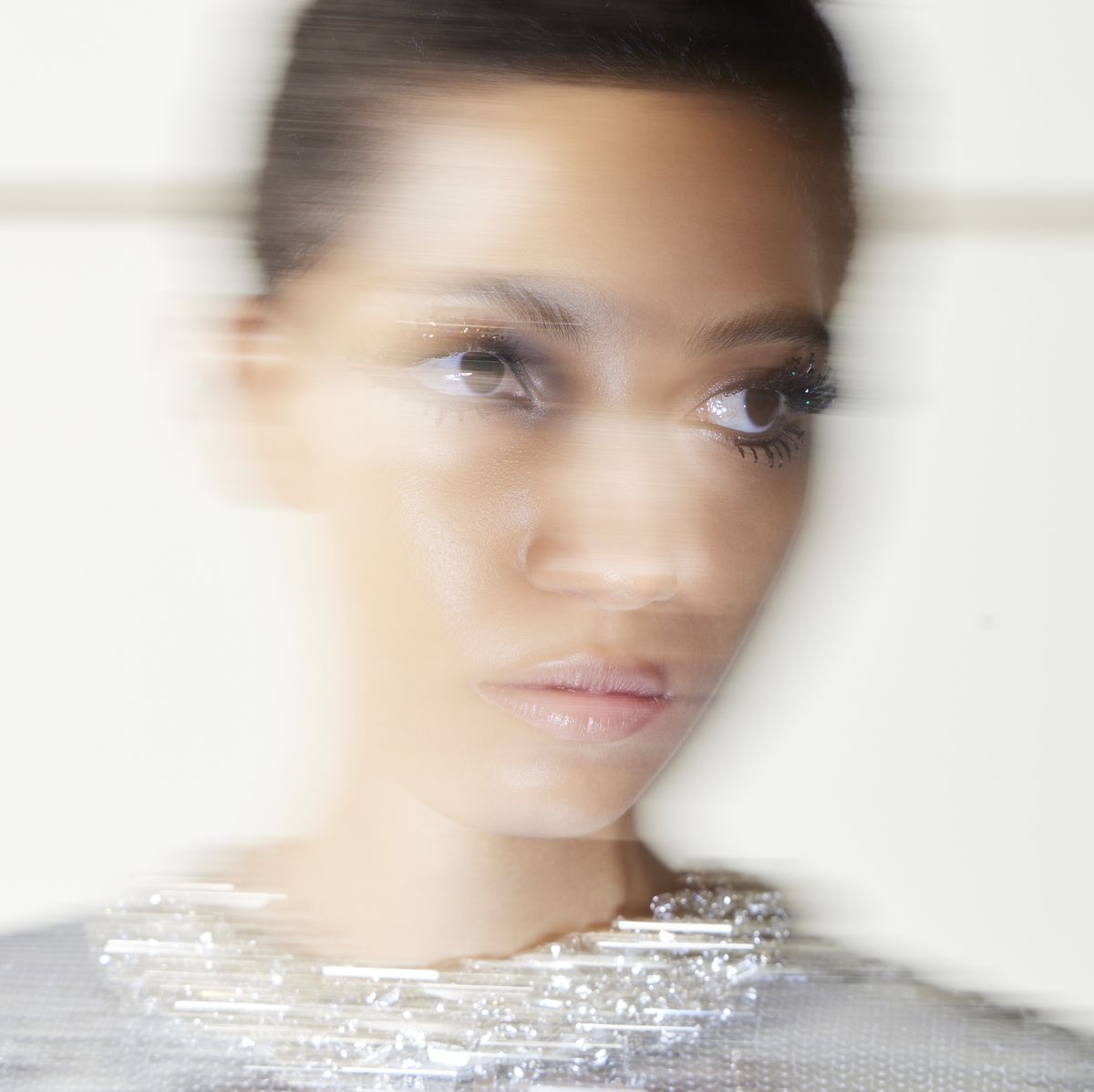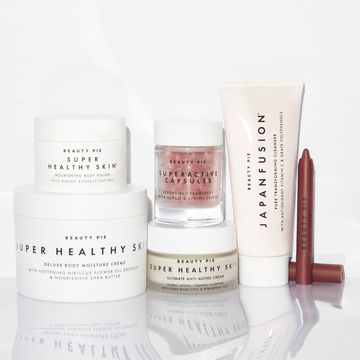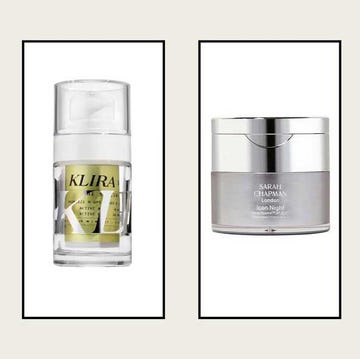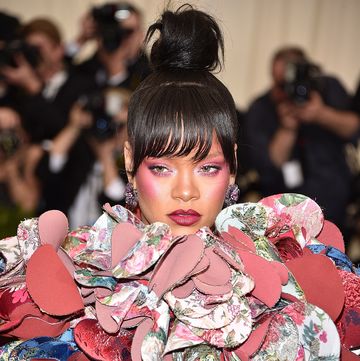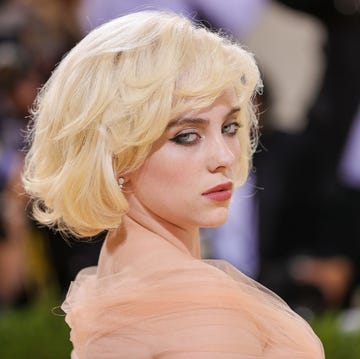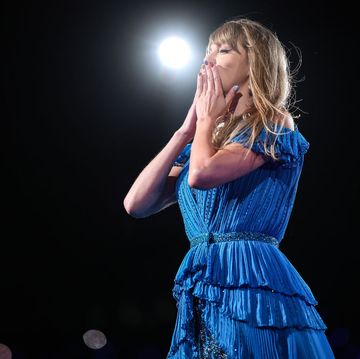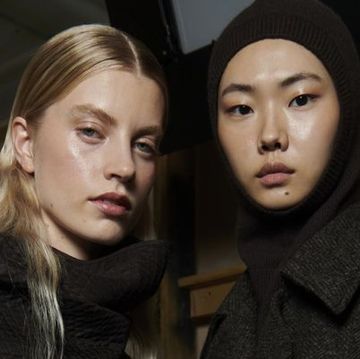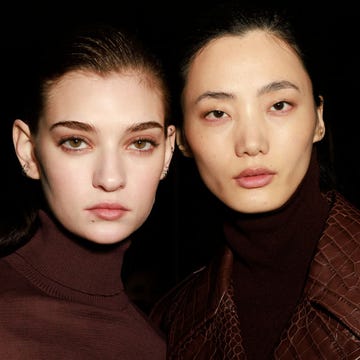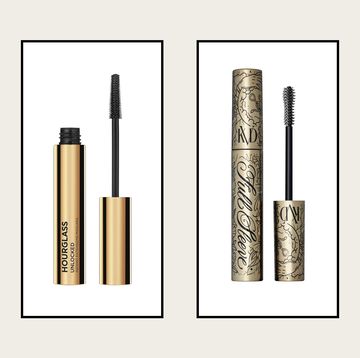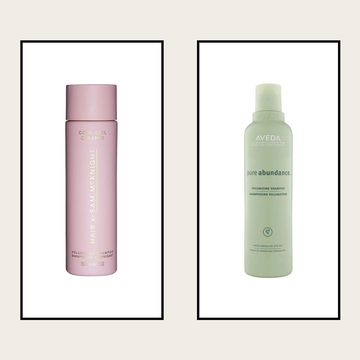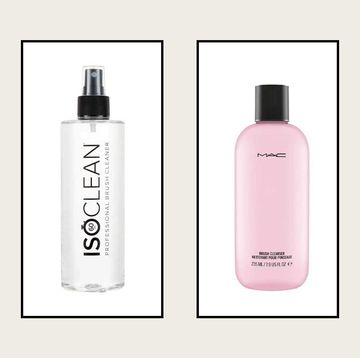It’s something many of us wear everyday and its transportive power grants it a special place in our hearts, but have you ever stopped to think about how your perfume is made? Wrapped up in storytelling and aspiration, fragrance is presented to us as art, but in reality it's steeped in science.
The final formula may be advertised with notes of flowers, fruits and spices but perfumers have long been whipping up synthetic ingredients in the lab to delight our senses. It’s no wonder then that these masterminds have been dabbling with the ever-evolving technology of AI. The rise of Chat GPT has pushed AI into the mainstream and as we swing from excitement at the possibilities it brings and the fear it will destroy, well, everything, we’re starting to see the role it might play in the beauty products we spend our hard earned money on.
The fragrance market is booming – worth $45.85 billion in 2022 and predicted to grow to $69.25 billion by 2030 – and there’s a staggering amount of scents available to buy. Being ahead of the curve when it comes to AI is one way for brands to stand out in an increasingly busy crowd. 'The beauty and wellness sector is already big on personalisation but now brands are using AI to meet consumers’ increasingly individual needs and desires while driving for greater efficiency and efficacy,' Olivia Houghton, Deputy Creative Foresight Editor and Beauty & Wellness Lead at The Future Laboratory, a strategic foresight consultancy based in London, tells ELLE UK.
While the bottle that ends up in our hands is normally branded by a fashion house, celebrity or independent label, the majority of fragrances are made by one of the few large perfume producers and it’s these companies who are leading the way with AI. 'These AI tools will never replace our perfumers but they can help them overcome the growing constraints of the industry and allow them to spend more time on the final human touch,' Johan Chaille de Nere, Fragrance & Beauty Director of Digital Transformation from Givaudan, the fragrance manufacturing company with the largest team of perfumers in the industry, explains. Chaille de Nere highlights how there are more sustainability, regulatory and financial constraints than ever with raw ingredients increasingly harder to source in a way that is deemed healthy for the planet and cost-effective for the end product. To give some context, it takes four to five tons of rose petals to extract just 1kg of rose oil that can be used in perfume.
At Givaudan they've been experimenting with AI tools over the last five years to optimise the creative process and tap into customer mindset. For instance, Carto allows their perfumers to mix together any of their huge library of notes on a visually appealing wide screen and at a click of a button have the instant-sampling robot deliver their creation.
With fragrance so subjective and hard to communicate through language, obtaining customer feedback and selling scents via words alone has always been a challenge. but AI tools are set to improve this. DigiPulse™, what Guivadan are calling ‘the first olfactive social listening tool’, uses AI to gather and categorise more than 2.5 million online comments across a range of social media platforms to inform perfumers about customers’ perspectives and preferences. More recently, Givaudan's Myrissi™ tool uses AI to connect specific scents with corresponding colours and emotions. Based on neuroscience expertise, Chaille de Nere explains how this tool can be used in two ways: 'It provides a new starting point for creating a fragrance (a colour) or to inform the visuals to communicate a final product via advertising or packaging.'
IFF, another big perfume manufacturer, is using similar technology. Notably, their augmented perfumery tool IFF Codex which helps perfumers create scents for different outcomes based on the combination of millions of pieces of information that the company has been compiling since the beginning of the 1980s. A big focus is on fragrances with wellbeing benefits, for example the tool used to create Vyrao fragrances: The Sixth to promote mindfulness and Sun Ræ to promote self-confidence.
Independent brands are also using these new technologies to flip the creative process on its head. Nadeem Crowe, the founder of Rook Perfumes, a niche perfumery house, usually takes inspiration from nature but created The Scent of the Metaverse by making an NFT; the video invited buyers to a Telegram group to share ideas about the scent of the fragrance and the packaging it was housed in via a democratic voting process. The final perfume was then sent to the members of the group and a limited batch went on general sale. 'It gave me a completely new landscape to be inspired by,' Crowe explains. 'This project brought us in front of a completely new audience who perhaps themselves didn't realise how eclectic and artistic perfumery can be,' he adds.
AI is also opening up opportunities for us to become more involved in the scents we buy, with a new crop of brands using AI tools to help customers create bespoke or personalised fragrances. EveryHuman is pioneering what they call ‘Algorithmic Perfumery’ the world’s first AI-guided scent creation platform which allows you to create one-of-a-kind perfumes based on information you enter via a questionnaire. Self-proclaimed digital perfume house, No Ordinary Scent is pursuing a similar path, using AI to create scents based on memories that mean something to you – simply upload 1-3 images and see what the machine comes up with.
Perfumery has always been a blend of art and science, so how much will AI play a role in its future? 'Maybe we will get to the point where AI is able to feel something in response to scent or even create a scent memory but as the most human and visceral sense we have, perhaps it will never be something that AI can truly understand,' Crowe suggests. 'I think it will initially feel like AI is taking over the industry but I’m sure sooner than we think there will be a semi-renaissance of human connection and an outcry for authenticity,' Josh Carter, a fragrance expert and founder of Fiole, an artisan fragrance finding service, says. 'The world of fragrance has always felt blurry in terms of what comes from where and why and AI is only going to muddy that water further – I wouldn't be surprised if AI-free became a marketing term further down the line.'
It seems perfumers won’t be out of their jobs anytime soon and in the meantime this new technology has the potential to breed even more creativity. After all, options are valuable and there is nothing more deeply personal about the scent we choose to wear.
